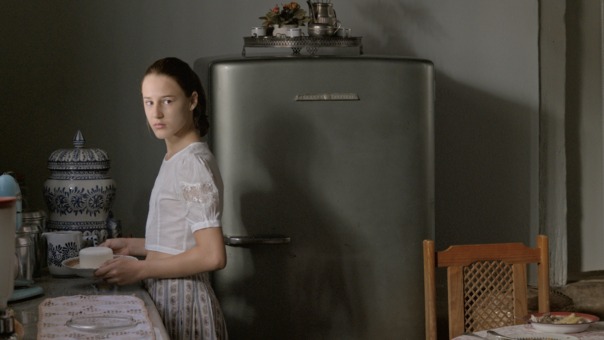LAS DOS IRENES: The Triumph of Childhood
By Davo Valdés de la Campa

Film still from LAS DOS IRENES
A girl in the process of becoming an adolescent discovers that her father has another family. In a nearby village in the Brazilian hills, he has another daughter with the same age and name as her: Irene. This is how she must simultaneously face her own growth and the disappointment of living a lie that has crumbled the certainties of childhood, all while watching how her older sister becomes a woman and passes her the baton to reach that same point soon. In a risky move, Irene manages to meet the other family and initiates a friendship with the other Irene, unfolding into a secret life: a series of lies just like her father’s. She even lives vicariously through the other Irene, trying the things she tries, confronting and accepting their contrasts as girls who abruptly discover the adult world. One spies, the other participates and later they exchange roles.
The confirmation of being while growing up, the possibility of being someone else and the fascinating play with the idea of the antipode and the doppelganger are some of the topics covered by LAS DOS IRENES, Fabio Meira’s first feature film. The impeccably made film, mature delivery and solid script written by him based on a family story has the ambiguity of innocence as one of its central axes; that is, to which extent one can prolong childhood and use the dynamics of play as a triumph.
With a subtle rhythm, the film not only follows the intimate process of the two Irenes; it also draws a portrait of a family built on a series of lies, assumptions and fragile configurations in an isolated, arid and sparkling landscape that superficially frames the course of a traditional family. However, from Irene’s perspective it is an illusion that maintains a certain order that suddenly falters completely to draw a smile on their faces. It is a delicate gesture of someone who learns to then act in a forceful way.

